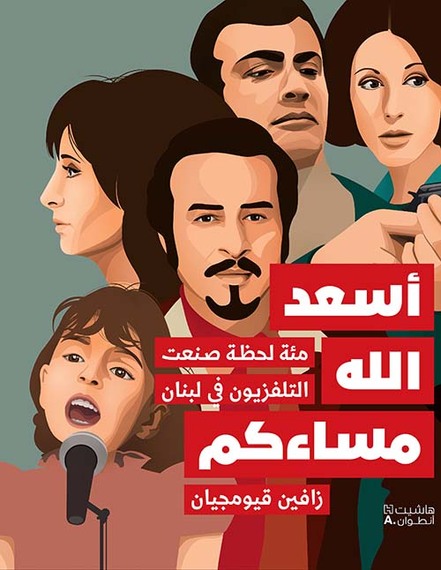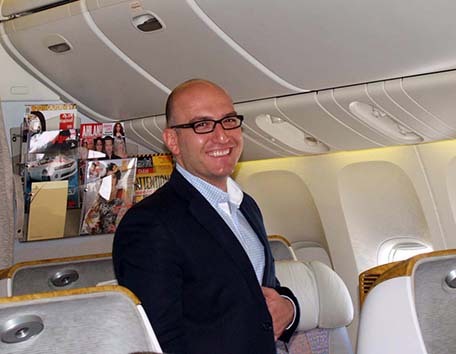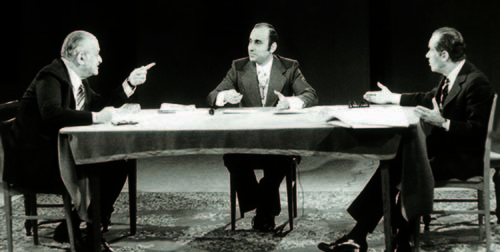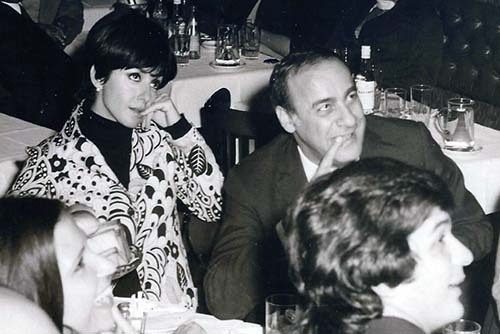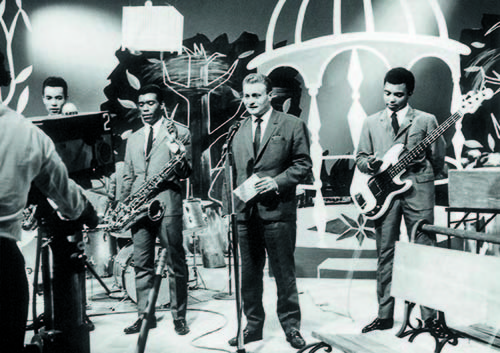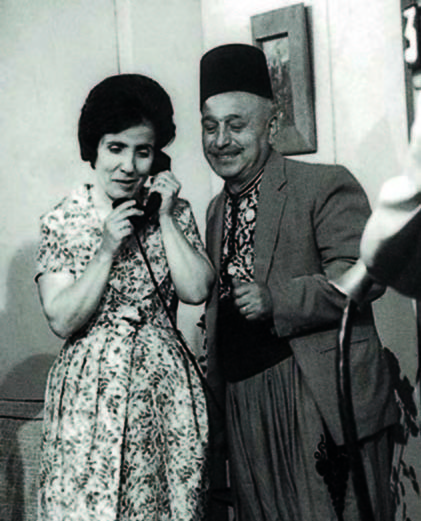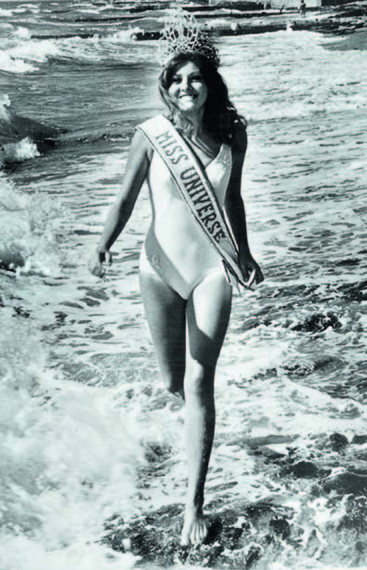Few may know or have viewed Perry Mason, Bonanza, The Green Hornet, The Fugitive and The Man From U.N.C.L.E on a black and white TV set.
Fewer yet may imagine a third of a 19-inch screen filled with Arabic and French subtitles, or Flipper dubbed into French and having to adjust a rabbit's ears antenna to get a clear picture.
Inconceivable in our integrated, converged, multimedia, multi-platform digitized 21st century?
That's what television viewers in Lebanon had for pickings, alongside locally produced fare in the early years when changing the two or three existing channels meant getting up to turn a knob - no remote control for zapping - and readjusting the antenna.
A fond walk down memory lane, courtesy of TV personality Zaven Kouyoumdjian, makes us relive those moments flipping through his hefty book Good Evening: Télé Liban's 100 History-Making Moments packed with over 600 pictures and vignettes.
"I do not consider my work as chronicling Télé Liban's (TL) history, it's more of creating and rebranding the history of Lebanese television in a modern way, it's recapturing the memory of three generations of Lebanese and making or converting it to the national memory of Lebanon," said Kouyoumdjian.
The TV talk show host and producer noted that young Lebanese knew nothing of their parents' social evolution and lifestyles, and were limited to what was good or bad, black or white, so he brought them some color.
"I started working on this project, on-and-off, six years ago," he explained. "The initial aim was to do a series of special shows in 2009 on the 50th anniversary of the first television broadcast in Lebanon."
He did, and found himself wanting to learn more, so he set about digging into the archives of TV channels, magazines, newspapers, and meeting with television pioneers.
Of those unforgettable moments was the first televised political debate in 1974, pitting interior minister Bahij Takeiddine against National Bloc leader Raymond Eddé with anchorman Adel Malek gingerly moderating the sparring foes.
Airing the debate was a trailblazing step three years after government censors stopped a show called "Sahra Ma'al Madi" (evening with the past) that began pushing the envelope by premiering Eddé blasting away at the previous government's stranglehold on liberties.
The program's Egyptian host Laila Rostom riled critics who found her interrogating style pushy and her approach arrogant.
Being the wife of Mounir Takchi, Lebanese TV's president of management and advertising, didn't save Rostom from the chopping block when she featured firebrand Alia Solh, daughter of post-independence Prime Minister Riyad Solh.
Rostom asked Solh what she remembered of parliament when her father would take her with him to general legislative sessions at the age of nine.
Solh blurted out that it was a real parliament of thinkers, statesmen and cultured men, unlike the "pen for rich children and warring families" that existed in 1971. That ended Rostom's TV career.
TV in Lebanon began as a commercial enterprise, unlike other Arab countries, albeit with heavy government interference and censorship.
Two major companies vying for audiences and advertising revenue were eventually merged into one, color was introduced, and later a state-run monopoly emerged until the 1975-90 Civil War sprouted competing channels founded and operated by warring militias that were finally mainstreamed and pulled the ratings and ad dollars rug from under TL.
Newscasts were brief at first with constraints on what could be aired. With the outbreak of war, the two main stations broadcast varied versions of events, until a free-for-all prevailed with the emergence of factional stations.
"I learned that it's Lebanese television that created Lebanese pop culture, and common culture, Lebanese dreams and a Lebanese legacy," said Kouyoumdjian of his research. "It was television that shaped the nation, modernized it and introduced notions of diversity."
Pierre Gedeon, who formed a satirical singing/acting theater group called "Theatre de 10 Heures" (Ten O'Clock Theater) presented a pop music program on Lebanese TV.
More folksy characters with down home advice to all who would watch and listen were Abou Melhem (father of fictional character Melhem) in traditional garb and Imm Melhem (mother of Melhem) featured in a weekly series.
Series were a staple of Lebanese TV, which aired its first programs in 1959, and became a money making export to Arab countries.
Singing stars Fairouz, Sabah and Wadih El Safi became more popular thanks to TV, while diva Magida El Roumi found fame on a then popular talent show.
A moment of pride was when 19-year-old beauty Georgina Rizk won the Miss Universe pageant in 1971.
Lebanese viewers first heard of it on their morning radio shows given the time difference between Beirut and Miami where the event was held. They had to wait until the evening in those pre-24/7 days to see it on their screens.
Kouyoumdjian, who began as a reporter at TL in 1992 before turning to anchoring, moved to Future TV in 1999 where he has been hosting top-rated talk shows. In 2005, Newsweek magazine named him one of the 40 most influential people in the Middle East.
He plans to turn the book into a digital edition and thereafter to an interactive website and documentary series.

